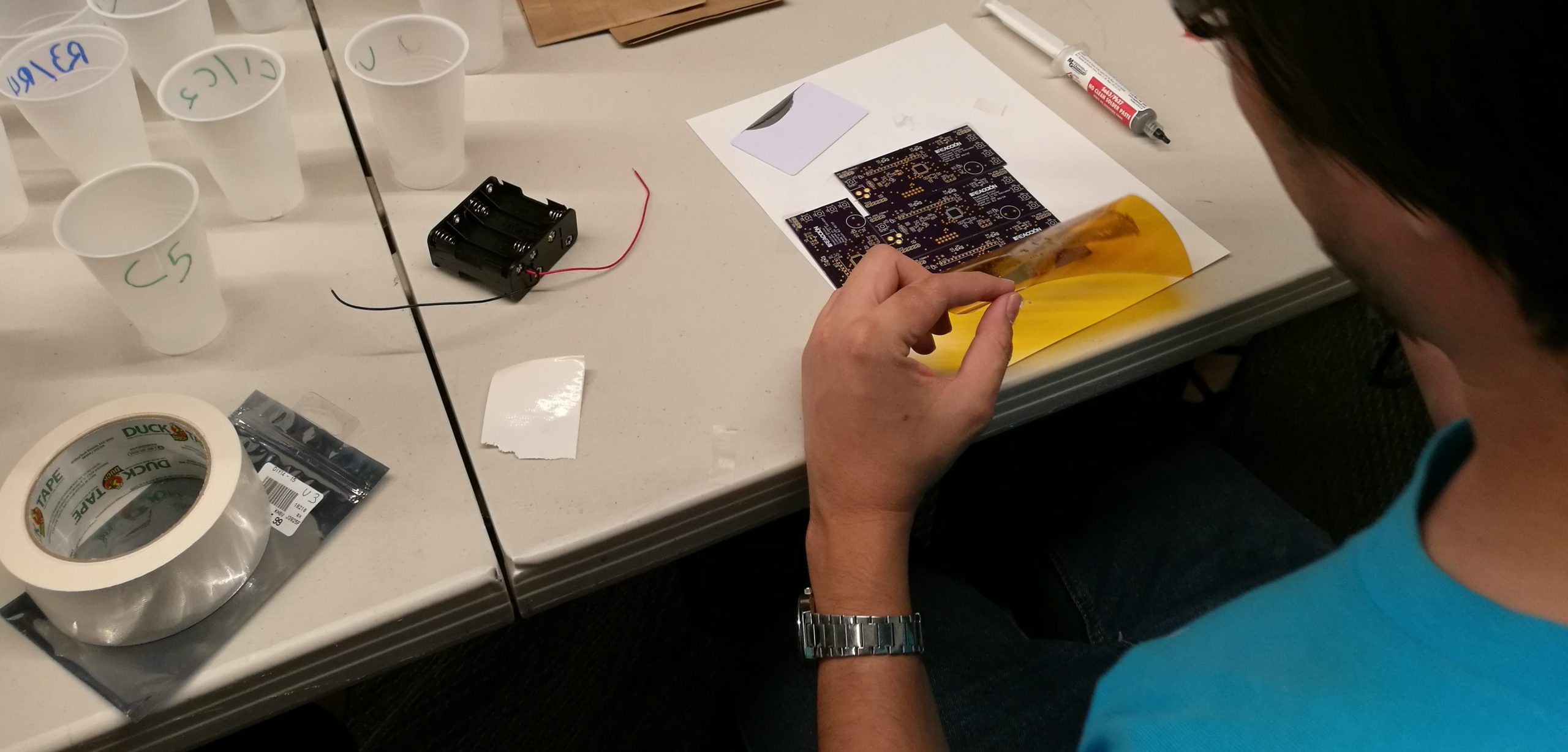This past month I had the opportunity to organize a workshop in Boston for makers, based on a workshop that Mario Gómez and I we did in Colombia back in 2016, this time with support from people at the Fab Foundation and Fab@CIC. The premise off which we based it was simple: since in El Salvador we don’t have access to a pick-and-place machine to do our electronics, our friends at the Hackerspace San Salvador have worked on simple methods to manufacture the pieces by hand. This proves to be an interesting yet difficult task, as components can be super, super tiny.

One of the main discussions that we had at the end of the workshop with participants had to do with the fact that you can indeed use machines for this type of work, but whether it was necessary to experience the process in a personal way. I would argue that indeed, it is important since one of the basis of maker culture is the idea, supported by constructionism, is that knowledge is built by experience. The more a person interacts with a process, the more they will draw from it.
One of the comments we received from a participant was that despite having made PCBs before, they had never realized that the process was simple enough to do by hand for simple pieces, and that they may attempt to try something like this at home for other projects. Furthermore, a few comments on how alternatives for expensive pick and place machines can bloom from projects like Reacción. On our side, the big question is how can we manufacture high-end electronics through simple procedures that can be implemented in rural communities, and going simple is one way to get the discussion started.
